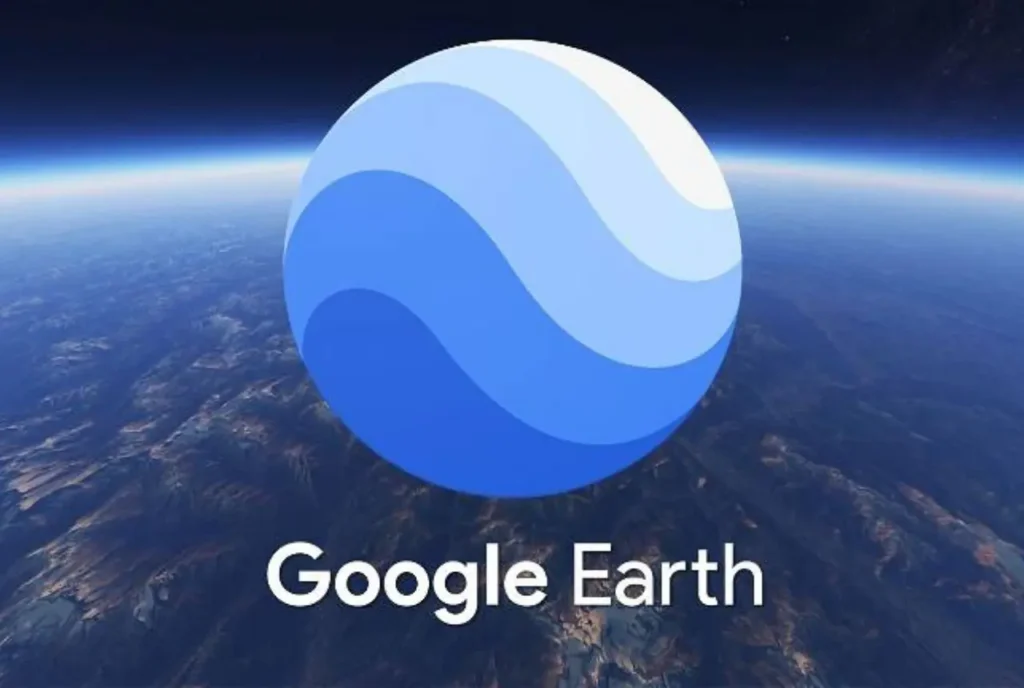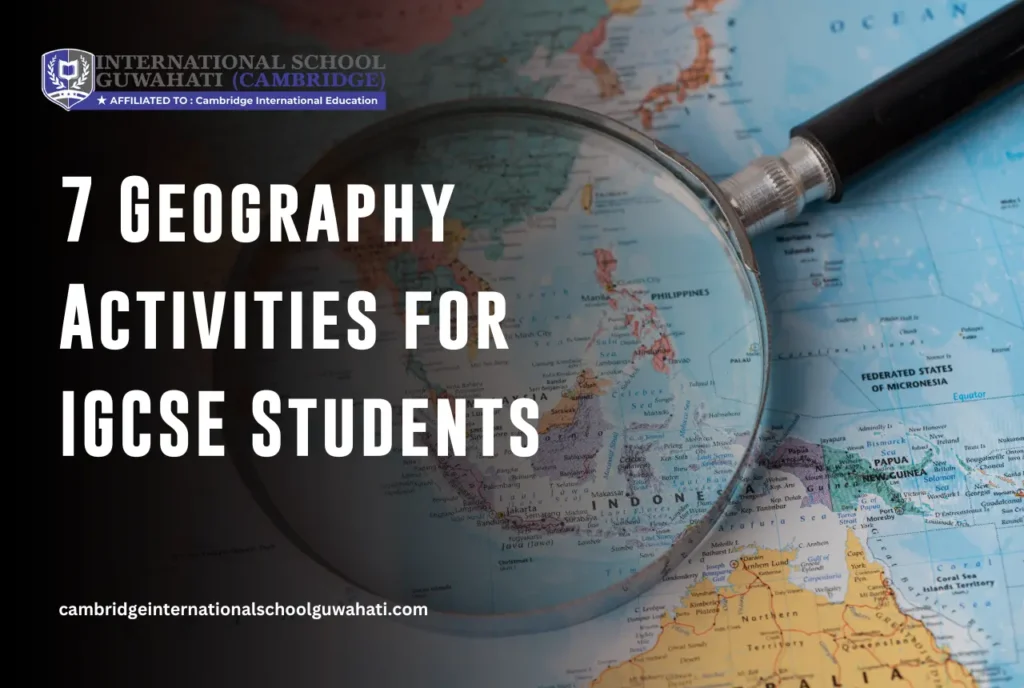![]()
Geography is more than just memorizing maps and facts; it’s a dynamic subject that helps students understand the world around them. The IGCSE Geography curriculum emphasizes not only theoretical knowledge but also practical skills that can be developed through engaging activities.
At Cambridge International School Guwahati, we recognize the importance of hands-on learning, especially when it comes to preparing for IGCSE exams. This blog will explore various IGCSE geography activities that students can do at home to enhance their understanding and retention of geographical concepts.
IGCSE Geography Activities You Can Do At Home
IGCSE geography is an important subject, as it provides students with the knowledge to analyze and interpret the world’s physical and human environments. Geographical understanding will help students develop reasoning and problem-solving skills, something that can be very important today in the globalized environment.
Learning geography at home enables students to consolidate classroom lessons and promotes a deeper appreciation of the subject.
Cambridge International School Guwahati promises to impart integral education in an innovative fashion of learning. The inclusion of hands-on learning should enable us to get through the lives of these students to facilitate better preparation for the challenges they face.
1. Create Your Own Topographic Maps

Objective: Understand contour lines and elevation.
Materials: Paper, pencils, rulers.
Activity Description: Draw an imaginary landscape on paper. Use contour lines to represent different elevations. For example, you can draw a mountain range or a valley. Label each contour line with its corresponding elevation level. This activity helps students understand topography and how elevation is represented on maps.
This way, the students will learn the most important IGCSE geography map skills and, at the same time, develop a better understanding of physical geography.
2. Weather Diary and Climate Analysis
Objective: Monitor weather developments and know the climate.
Materials: Notebook, thermometer, internet for weather forecasts.
Activity Description: Keep a daily weather log for at least two weeks. Record daily temperature, humidity, wind speed, and precipitation level. After gathering data, analyze seasonal changes and talk about how they impact local conditions of climate. This helps students understand the patterns and implications of weather on human activities.
This activity will teach the students the process of IGCSE geography fieldwork while developing analytical skills.
3. DIY Globe Crafting

Objective: Learn about continents, oceans, and countries.
Materials: Paper mâché materials and paints and markers.
Activity Description: Use paper mâché techniques to create a globe. After it dries, paint the continents and mark down major geographical features like oceans, mountain ranges, and deserts. This is a great hands-on activity where students are able to visualize the geography of the world and enhance their knowledge of global locations.
It is fun to build a globe and hence increase the understanding of geographical concepts and spatial relationships.
4. Virtual Field Trips Using Online Resources

Aim: Virtual exploration of global landmarks and ecosystems.
Materials: Computer with internet access.
Activity Description: Take advantage of the availability of online resources like Google Earth or virtual tours in museums to explore other parts of the world. The students can visit famous landmarks, national parks, or historical sites from home. Ask them to note down whatever they learn in the course of these virtual trips.
This activity meets the IGCSE geography revision activities, allowing a student to experience global locations firsthand without leaving home.
5. Map Puzzles for Spatial Awareness

Objectives: Enhance Map Reading Skills And Spatial Awareness.
Materials: Map puzzles or printable maps.
Activity Description: Use map puzzles or print out maps of various countries or regions to piece together. As they complete the puzzles, students will learn about country locations, capitals, and physical features such as rivers and mountains. This interactive method not only makes learning fun but also improves spatial awareness.
Map puzzles provide a useful method of reinforcing IGCSE geography map skills, in addition to making geographical concepts more accessible.
6. Family Geography Quiz Night
Objective: Reinforce geographical knowledge through fun quizzes.
Materials: Quiz questions, world map.
Activity Description: Host family quiz night on geography topics. Prepare questions on all countries, capitals, country physical features, and man-made landmarks. Use the world map as a visual prop during the quiz to direct participants to find answers geographically. This activity is participative and will solidify geographical knowledge in a rather fun way.
Adding quizzes to study habits greatly enhances retention rates for IGCSE students.
7. Cultural Landmarks Model Making

Objectives: Understand cultural geography through model building.
Materials: Clay, cardboard, paints.
Activity Description: Choose famous cultural landmarks like the Eiffel Tower or The Great Wall of China to recreate using clay or cardboard. Paint and decorate these models while discussing their historical significance and cultural relevance. This creative project allows students to explore cultural geography while developing artistic skills.
Models of cultural landmarks improve one’s understanding of global diversity as well as promote an appreciation for various cultures.
Conclusion
The benefit of these activities in the context of IGCSE geography is that learning becomes interactive and practical so that they understand the theoretical concepts very well. Using these at home, an IGCSE student has the means to improve memory retention for information learned without making studying boring.
At Cambridge International School Guwahati, we inspire our students to engage regularly in these activities so that geography is studied beyond textbooks. Our commitment to innovative learning ensures that all students are properly prepared to take their IGCSE exams while they hone their fundamental life skills along the process.
By learning geography by doing projects and engaging in interactivity, students not only do well academically but also develop a life-long interest in understanding their world!










